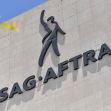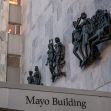U.S. District Judge Dolly Gee ruled that 20th Television must proceed to trial over allegations of religious discrimination against Rockmond Dunbar, a former cast member of the popular TV series "911." Dunbar was terminated after refusing the COVID-19 vaccine on religious grounds, marking a significant moment in the ongoing debate over vaccine mandates in the workplace.
Dunbar, who cited his beliefs as a follower of the Church of Universal Wisdom in refusing the vaccine, argued that 20th Television's refusal to grant him a religious exemption constituted discrimination. Judge Gee's ruling emphasizes the need to explore whether Dunbar's religious beliefs were sincerely held and if reasonable accommodations could have been made by the studio to allow him to continue his role on "911" without compromising the safety of others or imposing undue hardship on the production.
This case is the second of its kind to signal a potential trial over terminations related to vaccine mandates. It highlights the complex interplay between public health measures and individual religious freedoms. The trial will scrutinize the studio's actions and the broader implications for how employers navigate exemptions to vaccine mandates.
The controversy began when Disney, which owns 20th Television, denied Dunbar's exemption request, questioning the authenticity of his religious beliefs. This decision aligns with similar challenges faced by other employees across different industries, where the sincerity of religious beliefs and the legitimacy of religious institutions have been under scrutiny.
The forthcoming trial will determine the legality of Dunbar's termination and set a precedent for how studios and other employers address religious exemptions in the context of vaccine mandates. With the backdrop of the COVID-19 pandemic, this case underscores the tensions between maintaining workplace safety and respecting individual religious convictions.






